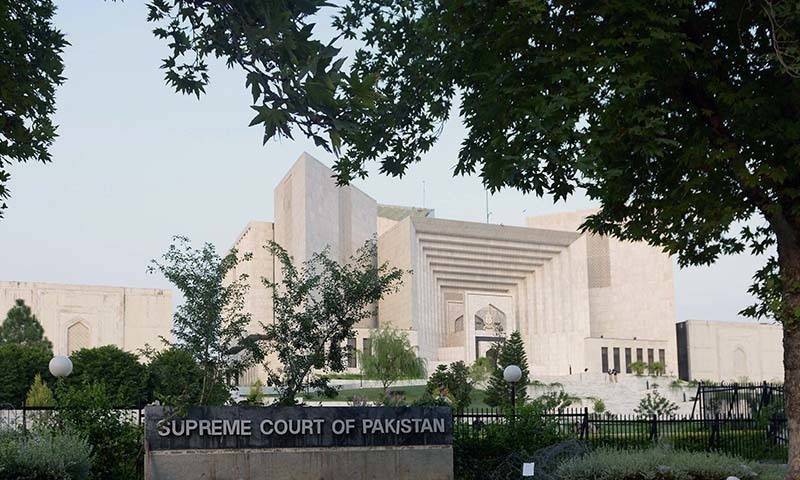The Supreme Court (SC) of Pakistan has once again given a verdict against former prime minister Nawaz Sharif. This decision is linked with what the apex court had observed, established and decided in Panamagate judgment. The SC has made it clear that a person after being declared ‘untruthful’ and ‘dishonest’ by the court cannot hold a position where he can give tickets to those who are supposed to be honest and truthful.
But as the court did give its verdict, a set of new questions, and serious political challenges just got momentum in Pakistan’s political discourse. Who will become the next president of the PML-N? Will Shahbaz Sharif replace his elder brother? Will Nawaz’s daughter and de-facto prime minster Maryam Nawaz advise her father to bring her ailing mother at the front to lead the party? How Shahbaz Sharif will feel and react if his sister-in-law becomes his boss? More importantly what is going to be the political status of Nawaz Sharif in his own family and party? Lastly, are we going to witness a PML-N dominated by Shahbaz and his son Hamza?
There are also some very important questions particularly regarding the role of SC raised by some firebrand speakers of PML-N, Pakistani intellectuals and political commentators. Has the court decided to be political savior of the country Is the court under the leadership of Chief Justice Saqib Nisar a court of law or a court of justice? Is the SC threatening democracy in Pakistan? Are the decisions made by the court undermining the parliament and constitution of the country? Are our courts independent?
PML-N at the moment is facing a serious existential threat. But this time this threat is not posed by some external factors rather it is internal disorganisation of the party which is challenging its future in Pakistan. Nawaz Sharif is, as many people in Pakistan point it out, not interested to let his younger brother run the party as its president. Nawaz’s disinterest is primarily due to a political insecurity his daughter is sensing at this moment. Shahbaz will come up with his son to lead the party where Maryam Nawaz will have to be a backbencher. This is unacceptable for both Nawaz and his daughter Maryam.
Moreover, it has also led to an interesting debate as to why PML-N is not considering any PML-N leader or political worker, apart from the Sharif family, capable enough to lead the party? This is creating a new debate within the party to ensure democracy at very earlier stages. This is threatening not only for Nawaz and Maryam but also for Hamza and his father who wish to lead the party. A threat to political dynasty is what causes its disorganisation and ultimate political disorientation.
The SC in Pakistan is doing what a court is supposed to do; decide matters independently. But the problem arises when the sitting government starts threatening the top court if it does not stop ‘judging’ parliamentarians, they (judges) would be cut down to their size. Pakistan’s top civilian and military leadership has almost always been above the law. These people have remained as ‘holy cows’ in Pakistan’s political journey since her inception in 1947. Now when the court has dared to questions discrepancies between what they have earned and what they had (source of earnings). To politicise the matter politicians have started to wage war against the courts so that the truth becomes hard to be found in a post-truth world.
The SC is looking into many matters at the moment. There are different politicians involved in corruption related matters from various political parties. Any attempt to implement the constitution in its letter and spirit does not imply that democracy is being compromised in Pakistan. As a matter of principle, rule of law is a primary political ideal of a genuine democracy. And effective implementation of law is something what actually strengthens a democracy by enhancing people’s confidence in the system. Therefore, what the court is doing in Pakistan is both in theory and practice strengthening democracy in Pakistan. Accountability, rule of law and effectiveness are becoming known currencies for the people of Pakistan and this is something what marks the triumph of democracy.
Pakistan is passing through a crucial time when civilian leadership who are supposed to be the guardians of democratic ideals are undermining the idea of democracy by making all efforts to control and compel the courts to get decisions of their own choice. In the long run, this is going to be counterproductive for those who are creating space for extra-democratic forces, sabotaging the dignity of the court and politicising what should have remained perfectly a legal matter. Individuals come and go, but institutions remain there and always evolve with the passage of time. PML-N as a political party should give more importance to the institutions and the Constitution of Pakistan rather than focusing on a single person who has been disqualified by the country’s top court.






